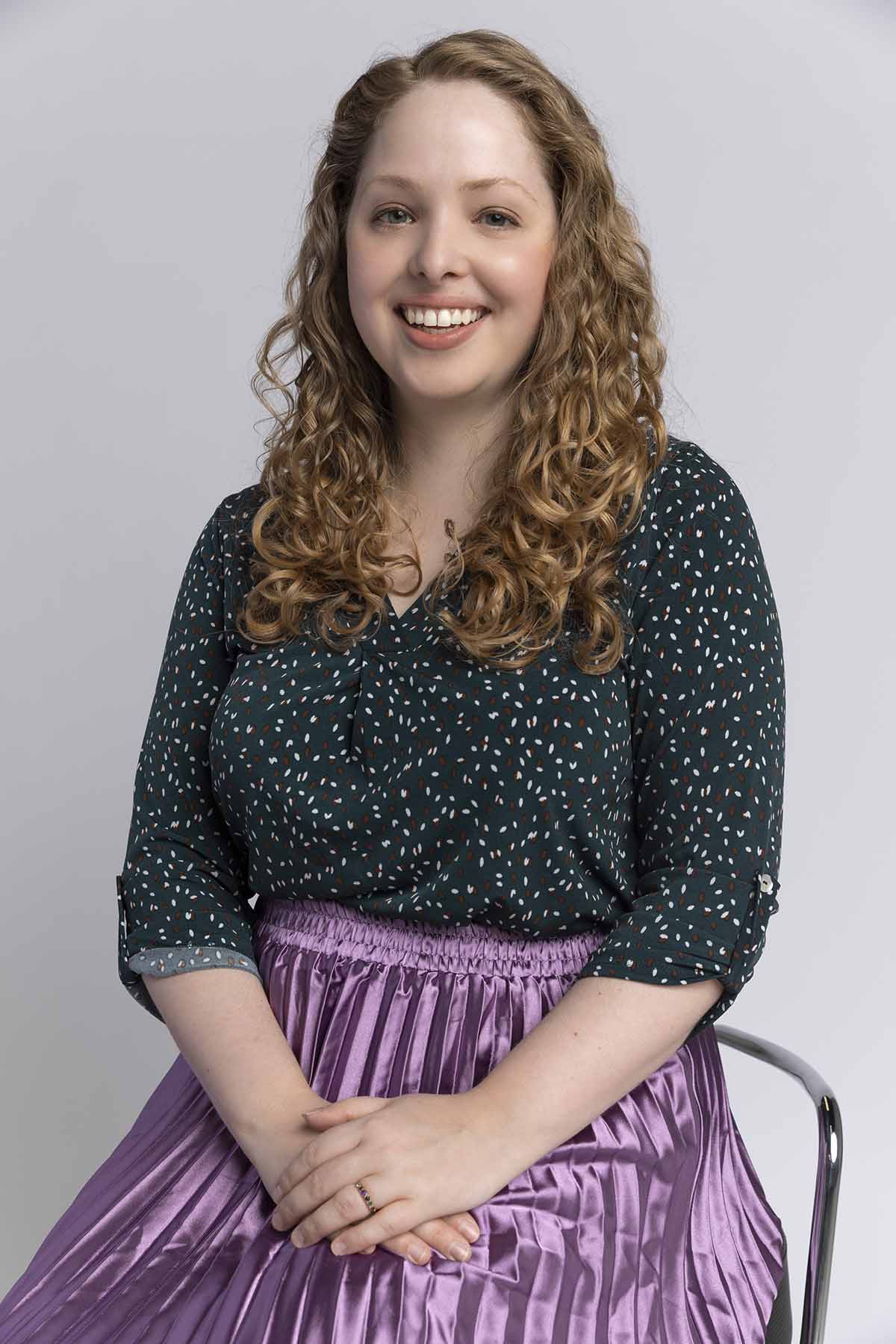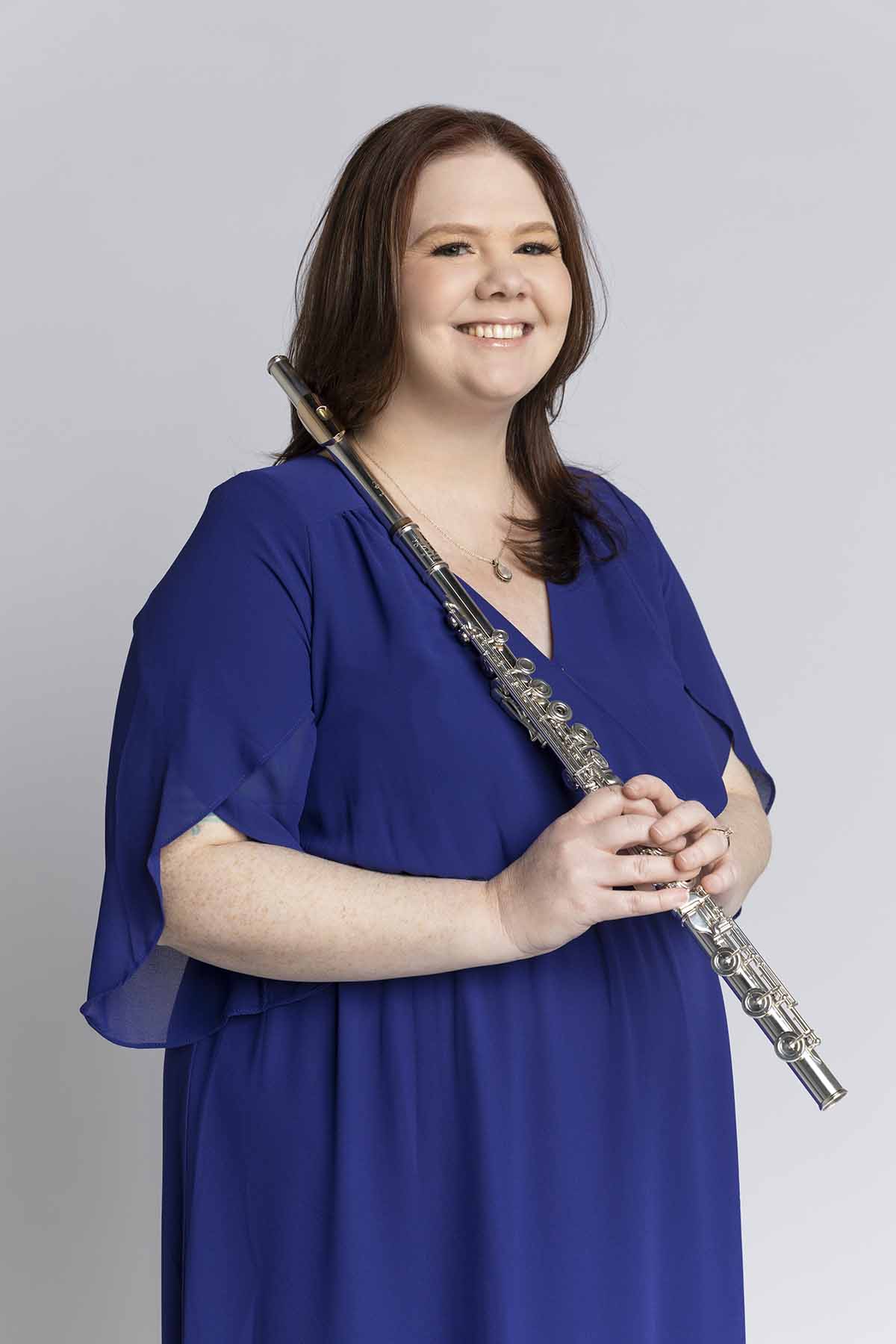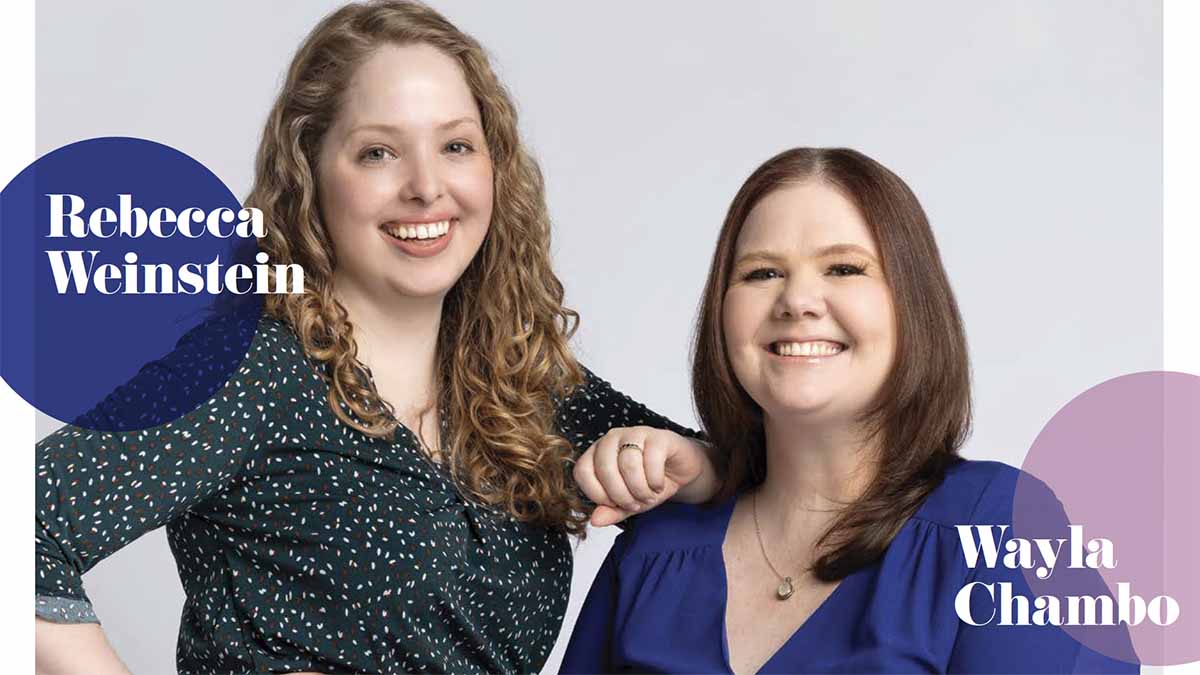Think classical music is a dying art reserved for only certain segments of society? Absolutely not! As WHRO staff members have been taking classical music into the community through open mic events and virtual concerts, fans of all ages are starting to discover a love of the genre. We recently caught up with two of our classical music staff, Wayla Chambo and Rebecca Weinstein, to see what they have been up to recently. As you’ll see through our interview, their love of classical music is contagious!
How were you introduced to classical music?

Rebecca Weinstein
Wayla: We always listened to various kinds of music at home, but my major introduction to classical music began when I started taking flute lessons at the age of nine. I studied with the same wonderful teacher from then until I graduated from high school, and she deserves a lot of credit for cultivating my love of classical music and setting me on the path to make it my life’s work.
Rebecca: I was first introduced to classical music when my high school voice teacher assigned me an Italian art song. Once I saw Eugene Onegin at Virginia Opera, I was hooked. I fell down the rabbit hole, and started listening to WHRO FM, and checking out classical and opera CDs from the public library.
What are the biggest misconceptions that you find people have about classical music?
Wayla: Often people seem to have the idea that it’s snobby and elitist, or that there’s some kind of required knowledge base you have to start with in order to enjoy it. I always like to say that there’s no exam; all you need to do is listen with an open mind and find out what you like! Admittedly, there is an element of elitism in classical music’s history, so I can understand why that perception exists. But in today’s world there are so many wonderful performers, presenters, etc., who are working to break down those barriers and really bring this music to everyone. That’s also a big part of our mission here at WHRO. We try to present the music in a way that’s accessible and enjoyable for all, and of course classical radio and our online stream provide great ways for new listeners to discover it. Another misconception is that classical music is dead or dying, or only exists in the past. It’s a vital tradition that’s still growing and evolving today, and there are many living composers writing compelling music that is well worth exploring.
Rebecca: The biggest misconception people have about classical music is that it’s relaxing music to zone out to. Many people enjoy it that way, and that’s completely fine, but there are many, many pieces that are anything but calming.
For people who don't listen to classical music, what would you say to convince them to try it?
Wayla: Classical music encompasses the whole range of human emotion and experience. It’s not all just “relaxing,” though some of it certainly can be; it can also express anger, terror, sorrow, love, humor, and much more. Musicians and composers of the past were real people who had feelings and life experiences similar to ours today. There’s such a rich variety in this music that I really think there’s something everyone can enjoy.
Rebecca: Classical music encompasses so many different sounds. There is something for everyone. Listen to WHRO FM for a couple of hours, find what strikes you, and look for other pieces by those composers. It may take a couple of listens, but I promise something will speak to you.
How did you get into radio?
Wayla: I had recently moved to Norfolk and was looking for part-time work while I finished my dissertation (I have a Doctor of Musical Arts degree from the University of North Texas). I had no experience in radio at the time, though plenty of experience with classical music. Dwight Davis decided to give me a chance and hired me as a weekend host. I will always be grateful to Dwight for giving me that opportunity, and I’ve learned so much since then from him, Raymond Jones, and many others.
Rebecca: I originally came to WHRO FM as the on-air arts critic after writing reviews in the Washington, D.C. area. When a full-time announcer position opened up, I remember thinking, “Whoever gets that job is really lucky.” I’m so grateful it was me and that I get to be a part of such an important legacy in our community.
What part of the job excites you the most?

Wayla Chambo
Wayla: I love getting to share music with thousands of listeners every day! Programming a radio show is similar in some ways to programming a concert, and I enjoy finding subtle connections between different pieces of music and putting them together in a way that flows. I also love doing events like our Classical Open Mics and offering people a space to build community through music.
Rebecca: My favorite part of working in classical radio is sharing the stories behind the pieces I program with our listeners. I love talking about music, but am fairly reserved socially, so radio is a good fit for me; it’s like public speaking for introverts.
Who is your favorite composer or performer and why?
Wayla: This is always a tough question! If I have to pick a favorite composer, I usually say you can’t go wrong with Johann Sebastian Bach. Especially during challenging times, I find myself coming back to his music again and again. Its beautifully ordered complexity is emotionally and intellectually satisfying, reassuring and uplifting. And as a flutist I have to put in a plug for one of the all-time greats in that field, French flutist Jean-Pierre Rampal (1922-2000). His sound, phrasing, and musical sensitivity influenced so many and still stand alone.
Rebecca: My go-to response is Mozart for classical and Sondheim for Broadway. Mozart because he gifted us with masterpieces in almost every genre. Sondheim because he changed the way I think about living life and making art.
If you had not become a radio announcer, what job do you think you'd be doing instead?
Wayla: I would most likely be teaching and performing music (which I still do on the side!). If I had a non-music job, I would probably be a writer or editor of some type. I did a creative writing minor in my undergraduate degree and I enjoy working with words.
Rebecca: I would likely be working in another role supporting the arts or classical music.
I’m sure that live radio can sometimes have its exciting or nail-biting moments. Do you have any fun stories to share?
Wayla: You certainly do have to stay flexible, keep cool, and be able to adapt to the unexpected – the show must go on! Live radio is very similar to live performance in that way, and I think my training as a performer has served me well in this role. One time on the weekend our automation system completely crashed and we couldn’t access anything from our digital music library. (As anyone who has a computer knows, technology is great when it works, but there are inevitably some times when it doesn’t!) I had to rush in to the station and host the show using CDs only while our great team of engineers jumped into action to fix the problem.
Rebecca: I used to get nervous having people in the radio studio while I was on air. One membership drive, we ended up having 3 opera singers, 1 pianist, 1 conductor, and 3 marketing staff members all behind me in the studio. I had to get over those nerves quickly! The most fun I’ve ever had on air were the times we’ve had guest performers from local arts organizations. It’s thrilling to have live music in the studio.
What other hobbies do you have that may surprise listeners?
Wayla: I’ve been learning Scottish Gaelic for the past two years, using the Duolingo app, and I currently have a streak over 600 days. It’s certainly not the most “practical” language to study, but I find it fascinating and a great mental challenge. I also have Scottish family heritage, and I like the idea of being part of keeping this beautiful language alive, in my own small way.
Rebecca: I have an antique player piano from 1915 in my music room that I like to play after dinner every night. I’m not sure that’s surprising though. It’s pretty on brand.
Wayla, you recently made a big announcement to the staff; would you like to share your good news with our readers?
Wayla: My husband and I are expecting our first child in June!
Congrats, Wayla! This is very exciting! You perform as a flutist with several local groups; do you have any performances where we can see you in 2022?
Wayla: I’ll be taking maternity leave for the latter part of 2022, but I do have a few more performances coming up before then. This month, I’ll be playing with the Norfolk Chamber Consort on April 25, on the final concert of their 53rd season, a program titled Time Machine: Crossing Epochs. (Details at ncconsort.org)
Rebecca, you recently launched Show Tune Cafe—tell us what makes this show so special.
Rebecca: There aren’t many radio programs curating classic Broadway music with historic anecdotes and insights. With Show Tune Cafe, I’m essentially trying to create the radio show I always wished I could have listened to as a kid. I spent so much time in my bedroom reading liner notes and listening to original Broadway cast recordings of shows like Guys and Dolls and My Fair Lady.
Rebecca, I recently learned that you collect antique sheet music. How did you get started doing that? What do you love about it?
Rebecca: I’ve always loved antiquing and thrifting. One day, I stumbled on a dozen volumes of 1920s sheet music in a shop in Staunton. I was entranced by the beautiful cover art and curious about some of the more obscure songs. It made me think about the role music used to play in our lives, back when people would go to the music store, pick out a piece, and learn to play it on their home piano for fun. It’s a spirit I try to replicate in my everyday life. You don’t have to be a professional performer to get something out of making music.
Anything else our readers would find interesting about you or your job?
Wayla: About me: I love animals, especially cats. I practice yoga and mindfulness meditation. I studied dance for many years, including ballet, modern, and jazz. I have three degrees in music. I’ve lived in North Carolina, California, Texas, and Virginia, and in Edinburgh, Scotland, for six months while on a study abroad program in college. About my job: There’s a lot that goes on behind the scenes to keep a 24-hour classical radio station running smoothly. All of our staff do this work because we love this music and are committed to sharing it with as many people as we can. It’s an honor to be part of carrying on the great legacy built by Dwight, Raymond, Vianne Webb, and many others over the years.
Rebecca: I never dreamed I’d be a radio announcer, but looking back, it makes sense. When I was studying classical voice and opera in college at the Peabody Conservatory, my favorite part of putting a recital together was always choosing, researching, and talking about the music.
Wayla Chambo is the assistant program director for WHRO FM. She hosts Afternoon Classics weekdays from 3–7 p.m.
Rebecca Weinstein hosts Mid-day Classics on weekdays from 10 a.m.–3 p.m., and Show Tune Cafe on Fridays from noon–1 p.m.

